Lidiya Izovitova: The Law on the Bar is a part of Ukraine's European integration path
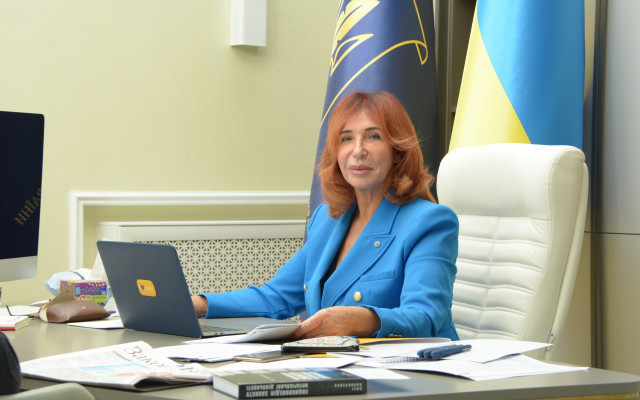
The current Law of Ukraine «On the Bar and Practice of Law» is the most modern law on the bar in Europe. Since it embodies European standards of legal profession and self-government, its adoption, among other things, allowed the signing of the Association Agreement with the EU in 2014.
This was emphasized by Lidiya Izovitova, the President of the Ukrainian National Bar Association and the Bar Council of Ukraine, during the International Bar Forum, which is taking place in Kharkiv on December 5-6.
The event is held at the Faculty of Advocacy of the Yaroslav Mudryi National Law University. The UNBA and the Kharkiv Regional Bar Council co-organized the forum.
The President of the UNBA, BCU reminded of the important moments of the formation and development of the modern bar in the context of the European integration path of our country. After all, during the preparation of the draft law, modern European standards for the organization and activities of the Bar, the conclusions of experts from the Council of Europe, the European Commission for Democracy through Law (Venice Commission) and proposals of leading Ukrainian scholars were taken into account.
At that time, the need to reform the Bar was driven not only by the need to take certain steps within our country, but also by the need for Ukraine to fulfill its international obligations.
This refers to the PACE Opinion No. 190 (1995) on Ukraine's accession to the Council of Europe of September 26, 1995 (para. 11), PACE Resolution No. 1346 (2003) «Fulfillment by Ukraine of its obligations and commitments» of 29.09.2003 (para. 10), PACE Resolution No. 1755 (2010) «Functioning of democratic institutions in Ukraine» of 04.10.2010. ), PACE Resolution 1755 (2010) on the Functioning of Democratic Institutions in Ukraine of 04.10.2010 (subpara. 7.3.6), which consistently demanded that the status of the legal profession be protected at the legislative level and that a professional bar association be established.
In fulfillment of these obligations, a draft law was prepared that provided for the establishment of the Ukrainian National Bar Association as an independent unified professional organization of lawyers. At the same time, the Venice Commission's opinion emphasized that membership in the UNBA should be mandatory for all Ukrainian lawyers. The Venice Commission did not recommend a dual level of membership, although the system of bar self-government bodies envisaged national and regional bodies.
Among the important provisions implemented in the final text, L. Izovitova mentioned the expansion of the types of advocacy, consolidation of professional rights and guarantees of advocacy, definition of the content of the attorney-client privilege and the legal mechanism for its protection, creation and functioning of the Unified Register of Advocates of Ukraine. It also prohibited any influence on the advocate and interference in his or her professional activities.
Therefore, the Law on the Bar and Practice of Law adopted on July 5, 2012, was one of the laws that allowed Ukraine to sign the Association Agreement with the European Union in 2014. After all, it embodied European standards of legal profession and bar self-government, and with its adoption Ukraine fulfilled its international obligations to the Council of Europe.
Subsequently, the constitutional amendments of 2016 (Law No. 1401-VIII «On Amendments to the Constitution of Ukraine on Justice») strengthened the status of the Bar. In particular, it is enshrined that in order to provide professional legal aid in Ukraine, the Bar operates, and its independence is guaranteed. The principles of organization and operation of the Bar and the practice of law in Ukraine are determined by law.
In this regard, the recent Shadow Report to the Justice and Fundamental Rights section of the European Commission's Report on Ukraine, prepared by the Coalition of Civil Society Organizations, looks somewhat strange. It criticizes the situation, effectively nullifying the achievements of all the reforms of the bar.
Therefore, if we assume that the current Law «On the Bar and Practice of Law» does not meet European standards, then it turns out that the 17-year monitoring of Ukraine's fulfillment of its international obligations in the area of the bar, as well as the adoption of the law itself and the subsequent signing of the Association Agreement, is nothing more than a deception of our international partners. Or perhaps European experts did not check Ukraine's fulfillment of its international obligations before signing the Association Agreement? This is hard to imagine, given the attention and time they devoted to the project up to its adoption.
Today, Ukraine is striving to become a member of the European Union as soon as possible. And we are bringing our legislation in line with European standards. And we claim that the Law «On the Bar and Practice of Law» has already been reviewed for compliance with European standards. We have a proof - the signing of the Association Agreement.
Then what is the shadow report, for which, as they say, considerable funds were allocated, but which does not provide any meaningful basis for reforming the bar? This is a claim by a group of people that the 2012 bar reform did not take place.
Perhaps it is aimed at destroying Ukraine's achievements in order to prove that it is too early for Ukraine to join the European Union? It is obvious that the document is not professional in its content and in its formulation of the problem. It looks too provocative, as it contains narratives aimed at weakening the institution of the bar.
L. Izovitova also emphasized that any developing institution requires certain legislative improvements. And the Ukrainian Bar is ready for positive changes that are prompted by the life and activities of lawyers and self-governing organizations. But under any circumstances, Ukraine should have a strong bar, which is the first line of defense of human rights in any country where the rule of law is in force.
Popular news
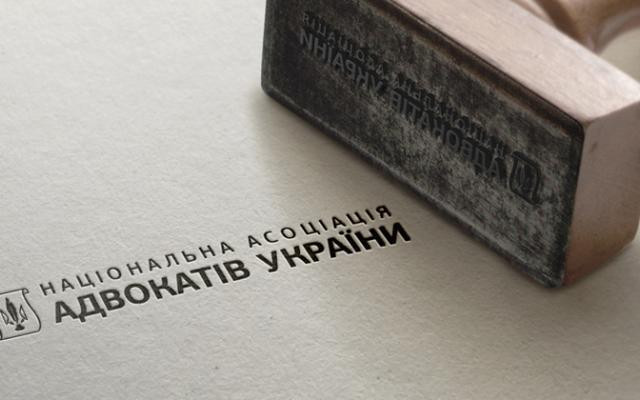
Self-government
The BCU demands a review of the composition of the government working group on reforming the advocacy profession
The President of the UNBA, BCU Lidiya Izovitova, appealed to the Cabinet of Ministers of Ukraine to review the composition of the working group on improving legislation in the field of advocacy and legal practice.

Discussion
Why lowering the age of marriage lacks legal logic
Although until 2012 there was a provision in family law that allowed children to marry from the age of 14 under certain circumstances, its return to Ukrainian law would contradict international obligations and the logic of criminal law.
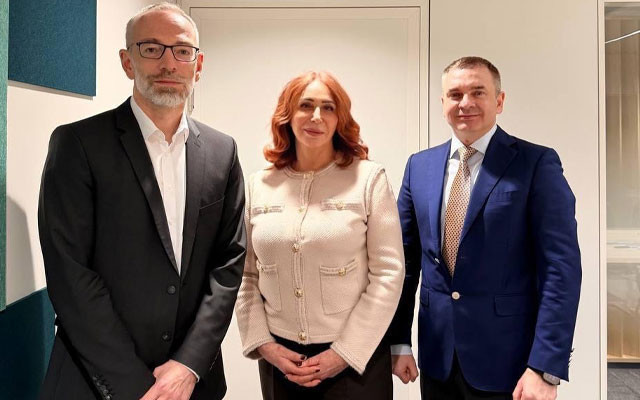
European integration
Open dialogue between the UNBA and the European Commission on the path to EU
The Ukrainian National Bar Association held a working meeting in Brussels with Mr Wolfgang Nozar, Head of Unit for Governance, Rule of Law and Financial Assistance, Directorate-General for Enlargement and Eastern Neighbourhood (DG ENEST), European Commission.

Self-government
A report on Ukrainian advocacy was presented in the European Parliament
Can a shadow report on advocacy replace the political framework of the Roadmap on the rule of law with demands for the restructuring of self-government? Where is the line between accountability and the seizure of institutions? And how can we respond to narratives with data rather than impressions?
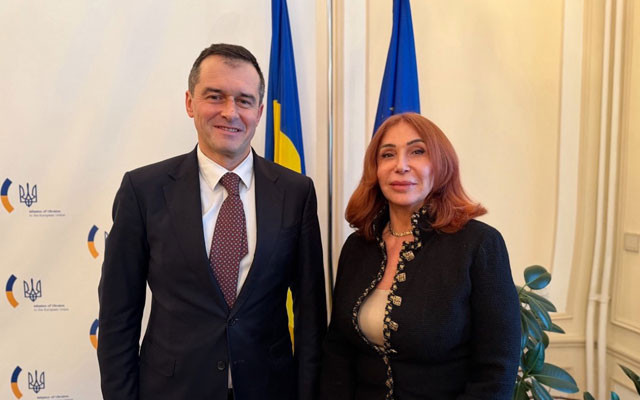
European integration
UNBA and Ukraine's representation to the EU have synchronized their priorities
On February 5, in Brussels, the President of the UNBA, BCU Lidiya Izovitova held a working meeting with the Ambassador Extraordinary and Plenipotentiary of Ukraine, Representative of Ukraine to the European Union Vsevolod Chentsov.

Guarantees of the practice of law
Proceedings opened following attack on advocate in Dnipro
The Committee for the protection of advocates' rights and guarantees of legal practice of the UNBA appealed to law enforcement agencies in connection with an advocate's report of an attack while performing his professional duties. The information was entered into the Unified Register of Pre-trial Investigations and a pre-trial investigation was initiated.
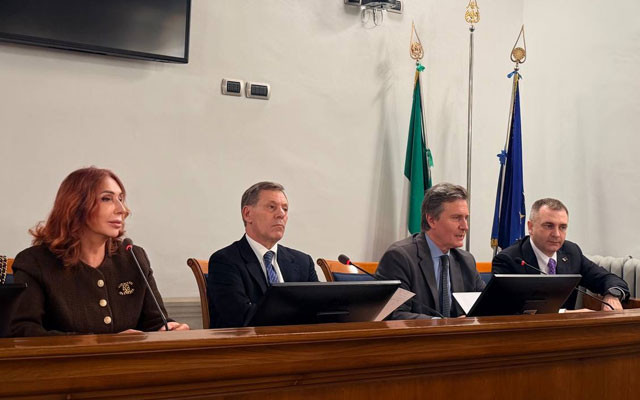
Interaction
«With us — to Europe»: Italian advocacy supports UNBA initiatives
On January 30, a meeting was held in Rome between a delegation from the Ukrainian National Bar Association and the National Bar Council of Italy (Consiglio Nazionale Forense, CNF) on the standards and practices of the legal profession and their significance for Ukraine's European integration process.
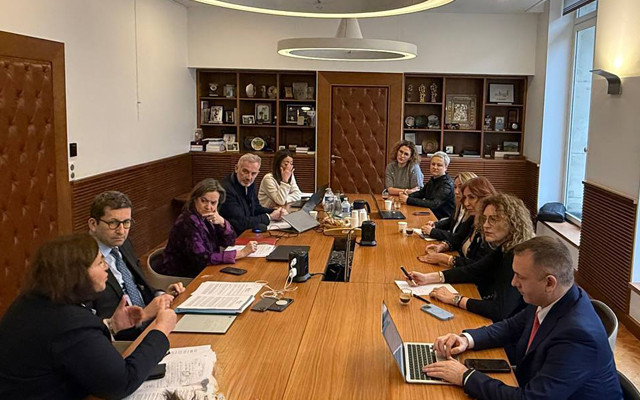
Interaction
France confirms cooperation with UNBA on reforms in the field of the rule of law
On January 29, a working meeting between representatives of the Ukrainian National Bar Association and the French National Bar Council (Conseil National des Barreaux, CNB) took place in Paris.
Publications

Volodymyr Matsko Extradition as a systemic form of rights violations

Victoria Yakusha, Law and Business The anti-corruption vertical cannot «take care» of the Bar as an institution, - acting head of the HQDCB

Censor.net Protecting advocates – protecting justice: addressing concerns about the new law

Ihor Kolesnykov A BRIEF SUMMARY REGARDING THE APPLICATION OF THE ORDER ON EXTENDED CONFISCATION IN LATVIA REGARDING FINANCIAL ASSETS OF…

Valentyn Gvozdiy WORKING IN A WAR ZONE

Lydia Izovitova Formula of perfection

Sergiy Vylkov Our judicial system is so built that courts do not trust advocates

Iryna Vasylyk Advocacy in the proclamation of Independence of Ukraine
